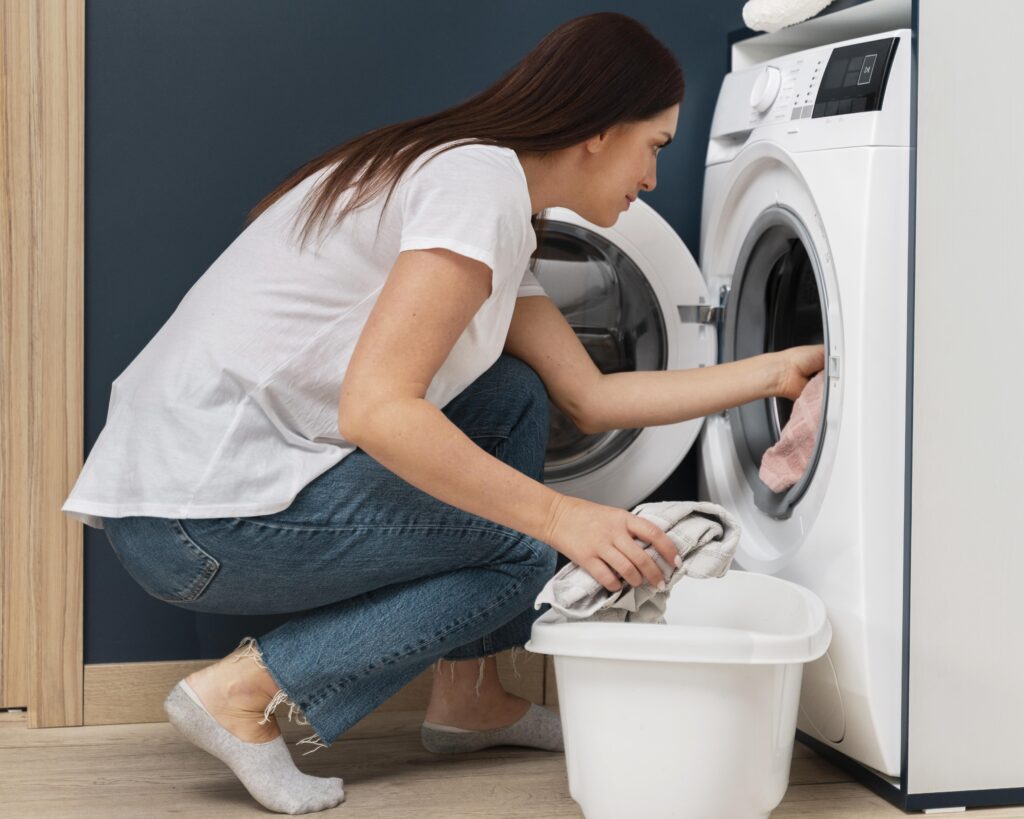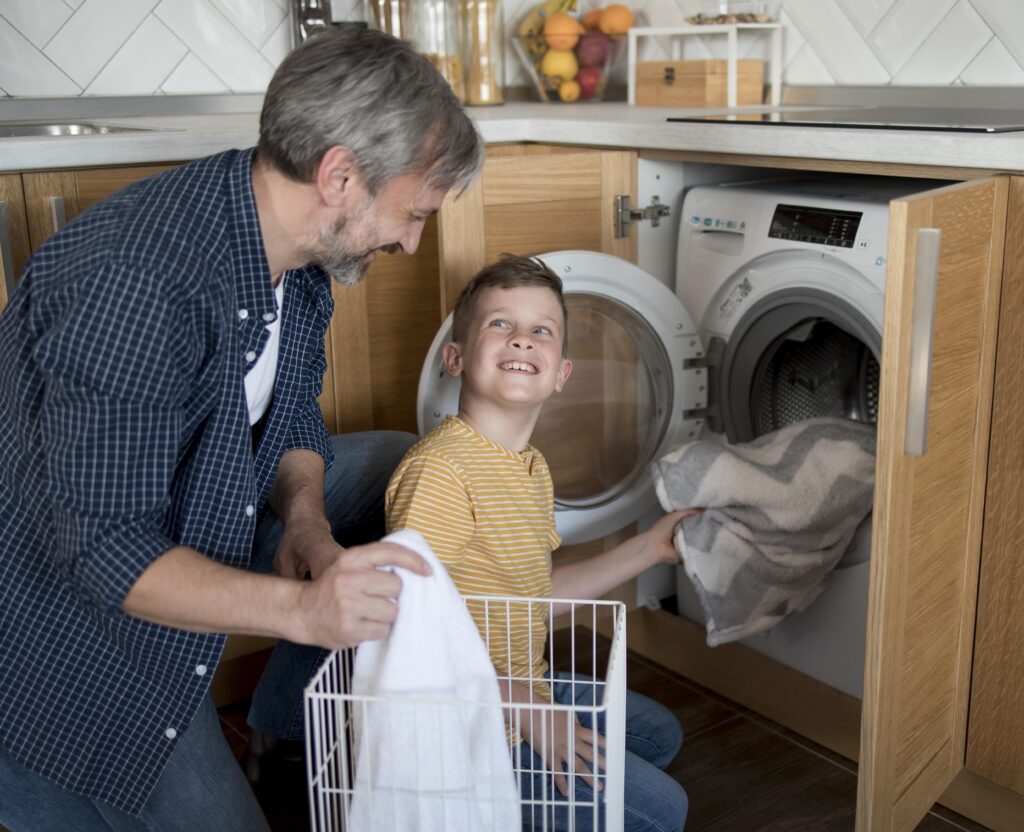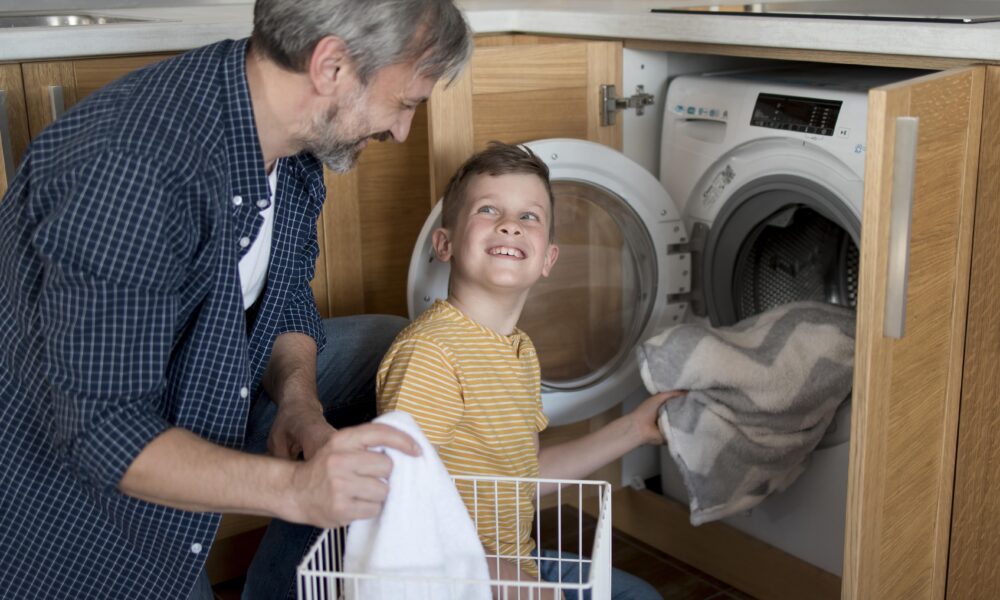In today’s world, energy efficiency has become a key consideration for households looking to reduce utility costs and minimize their environmental impact. As one of the most frequently used appliances in the home, washing machines consume significant amounts of both electricity and water. Energy-efficient washing machines are designed to tackle this issue by using less energy and water while delivering the same cleaning performance, making them an appealing choice for eco-conscious consumers. In this article, we’ll explore the benefits of energy-efficient washing machines, how they work, and what to consider when choosing one.

Benefits of Energy-Efficient Washing Machines
A. Cost Savings on Utility Bills
One of the most immediate advantages of energy-efficient washing machines is the cost savings they provide. By using less electricity and water, these machines can significantly reduce monthly utility bills. According to the U.S. Department of Energy, Energy Star-certified washers use 25% less energy and 33% less water than conventional models, potentially saving hundreds of dollars over the appliance’s lifetime.
B. Reduced Environmental Impact
Energy-efficient washers contribute to a more sustainable lifestyle by lowering energy consumption and water usage, which reduces the carbon footprint associated with doing laundry. By consuming fewer natural resources, these machines help mitigate the effects of climate change and reduce water waste. Additionally, many energy-efficient washing machines are designed to use cold water effectively, which further decreases the energy needed for heating water.
C. Longer Lifespan of the Appliance
Energy-efficient washing machines often feature advanced technology that extends their lifespan. They tend to be gentler on clothes, preventing excessive wear and tear, and their durability often means fewer repairs or replacements over time. Additionally, the longer-lasting components of energy-efficient models contribute to fewer appliances ending up in landfills.
How Energy-Efficient Washing Machines Work
A. Energy-Saving Features
Energy-efficient washing machines incorporate several innovative features that help reduce energy consumption:
- Higher Spin Speeds: These machines typically have higher spin speeds, which extract more water from clothes during the spin cycle. This reduces drying time and energy consumption in dryers.
- Shorter Wash Cycles: Modern energy-efficient washers use optimized wash cycles to get clothes clean in less time, saving both energy and water.
- Sensor Technology: Many energy-efficient machines are equipped with sensors that adjust water levels and cycle duration based on the load size, minimizing waste.
B. Energy Consumption Comparison
When comparing energy consumption between traditional and energy-efficient washing machines, the difference is clear. Traditional machines may use up to 40 gallons of water per load, while energy-efficient models can use as little as 10-15 gallons. Similarly, older models can consume up to 1,000 kWh of electricity annually, while energy-efficient machines use closer to 300-500 kWh. These savings not only lower bills but also contribute to a more eco-friendly household.

Tips for Choosing an Energy-Efficient Washing Machine
A. Look for the Energy Star Label
When shopping for an energy-efficient washing machine, the easiest way to identify a suitable model is to look for the Energy Star label. This certification is awarded to appliances that meet strict energy efficiency guidelines set by the U.S. Environmental Protection Agency (EPA). Choosing an Energy Star-certified washing machine ensures you are investing in a model that will deliver significant energy and water savings.
B. Consider the Capacity and Features
Select a washing machine with a capacity that fits your household’s needs. If you frequently wash large loads, consider a machine with a higher capacity to avoid running multiple loads. Additionally, look for features like customizable wash settings, steam cleaning, and eco-friendly modes that allow you to save energy while tailoring the washing experience to your preferences.
C. Compare Water Usage and Energy Efficiency Ratings
Different models offer varying levels of water and energy efficiency. Check the machine’s water factor (WF) rating and its modified energy factor (MEF). The lower the WF rating, the more efficient the machine is in terms of water usage. A higher MEF indicates better energy efficiency. Comparing these ratings can help you find a machine that meets both your environmental and budgetary goals.
Also Read: How to Choose the Right Smart Refrigerator
Maintenance and Care for Energy-Efficient Washing Machines
A. Regular Cleaning and Maintenance Tips
To keep your energy-efficient washing machine running optimally, regular maintenance is crucial. Clean the machine’s drum, detergent drawer, and filters to prevent buildup that can affect performance. Periodically run an empty wash cycle with vinegar or a specialized cleaner to remove residues and odors. Ensuring proper airflow around the machine can also improve its efficiency and lifespan.
B. Best Practices for Loading and Detergent Usage
To maximize the performance of your energy-efficient washer, avoid overloading the machine. This can strain the motor and reduce its ability to clean effectively. Use the correct amount of high-efficiency (HE) detergent, as using too much can cause excess suds, which can damage the machine and reduce efficiency. Always follow the manufacturer’s recommendations for load sizes and detergent use.
Case Studies or Testimonials
A. Real-Life Examples of Households Saving Money and the Environment
Take, for example, the Johnson family, who switched to an energy-efficient washing machine and saw their monthly water bill drop by 30%. Over the course of a year, they estimated savings of $150 on utilities while significantly reducing their water usage, aligning with their goal of living a more sustainable lifestyle.
Similarly, the Martins, a family of four, replaced their traditional washer with an Energy Star-certified model and immediately noticed a decrease in their electricity consumption. They appreciated the machine’s efficient water use, especially during periods of drought when conservation was a priority.

B. Testimonials from Satisfied Customers
Many customers report satisfaction with the performance and savings provided by energy-efficient washing machines. “Our energy bills dropped noticeably after switching to a high-efficiency washer,” says Sarah, a mother of three. “Not only are we saving money, but we feel good about reducing our environmental impact.” Another customer, John, notes, “The higher spin speed means my clothes dry faster, and I use the dryer less, which is an added bonus for saving energy.”
Conclusion
Energy-efficient washing machines offer numerous benefits, from lowering utility costs to helping reduce your household’s environmental footprint. With features like shorter wash cycles, higher spin speeds, and water-saving technologies, these appliances provide a long-term solution for sustainable living. When choosing a washing machine, looking for the Energy Star label and understanding efficiency ratings can help you make an informed decision. By switching to an energy-efficient washing machine, you can not only save money but also contribute to a greener planet.
